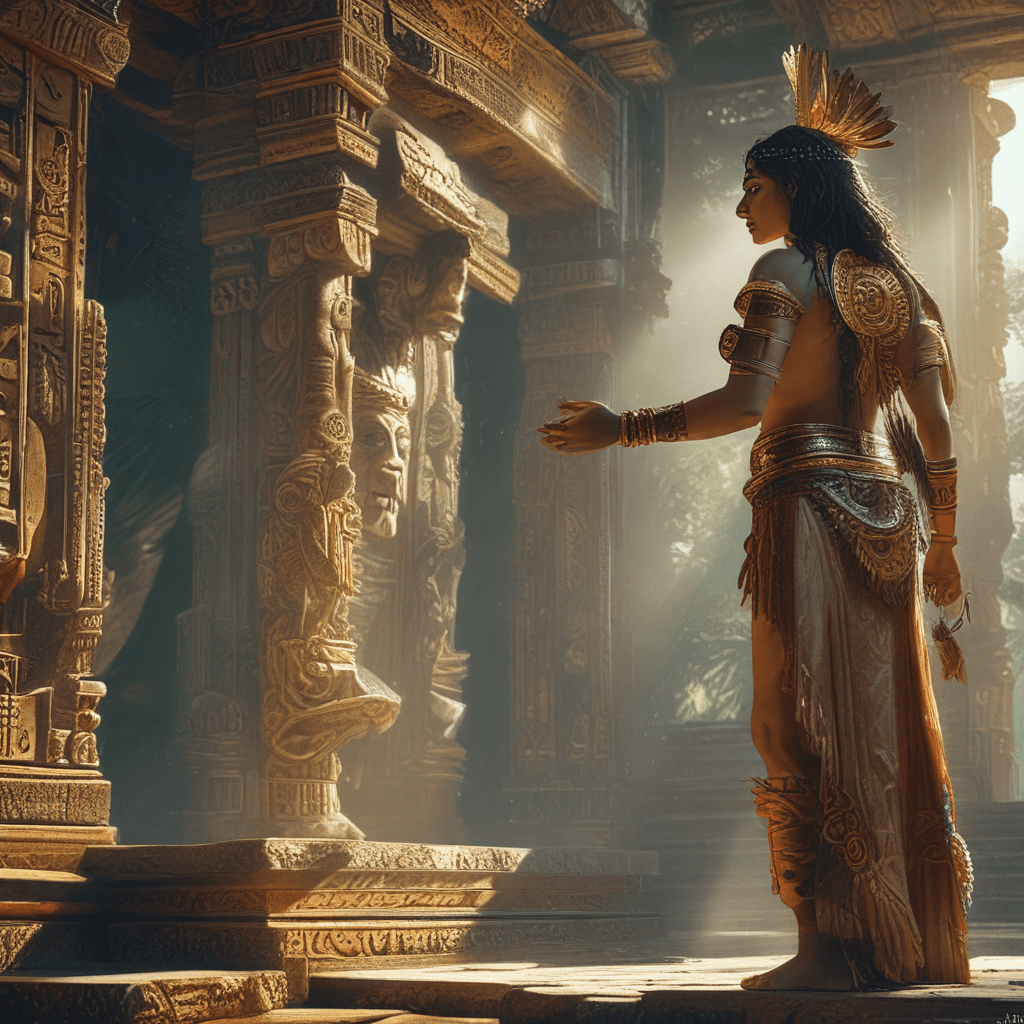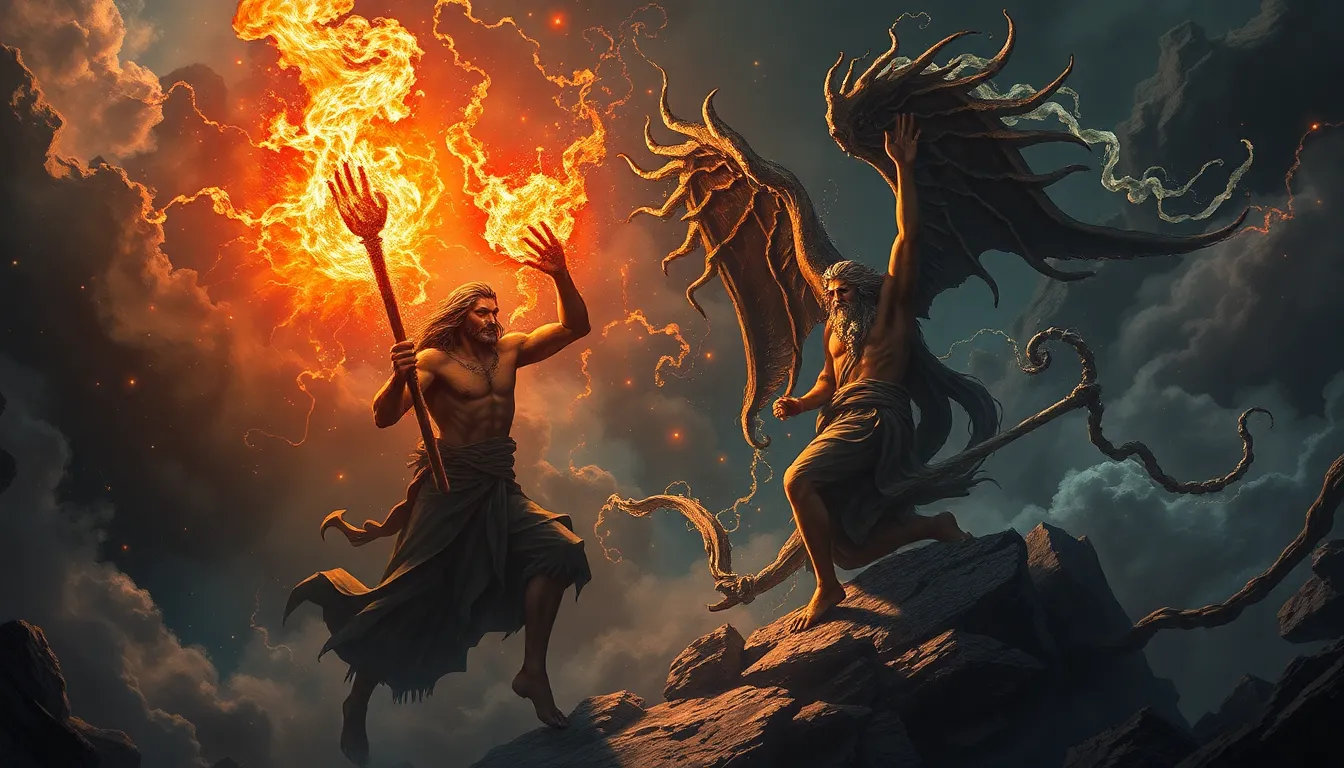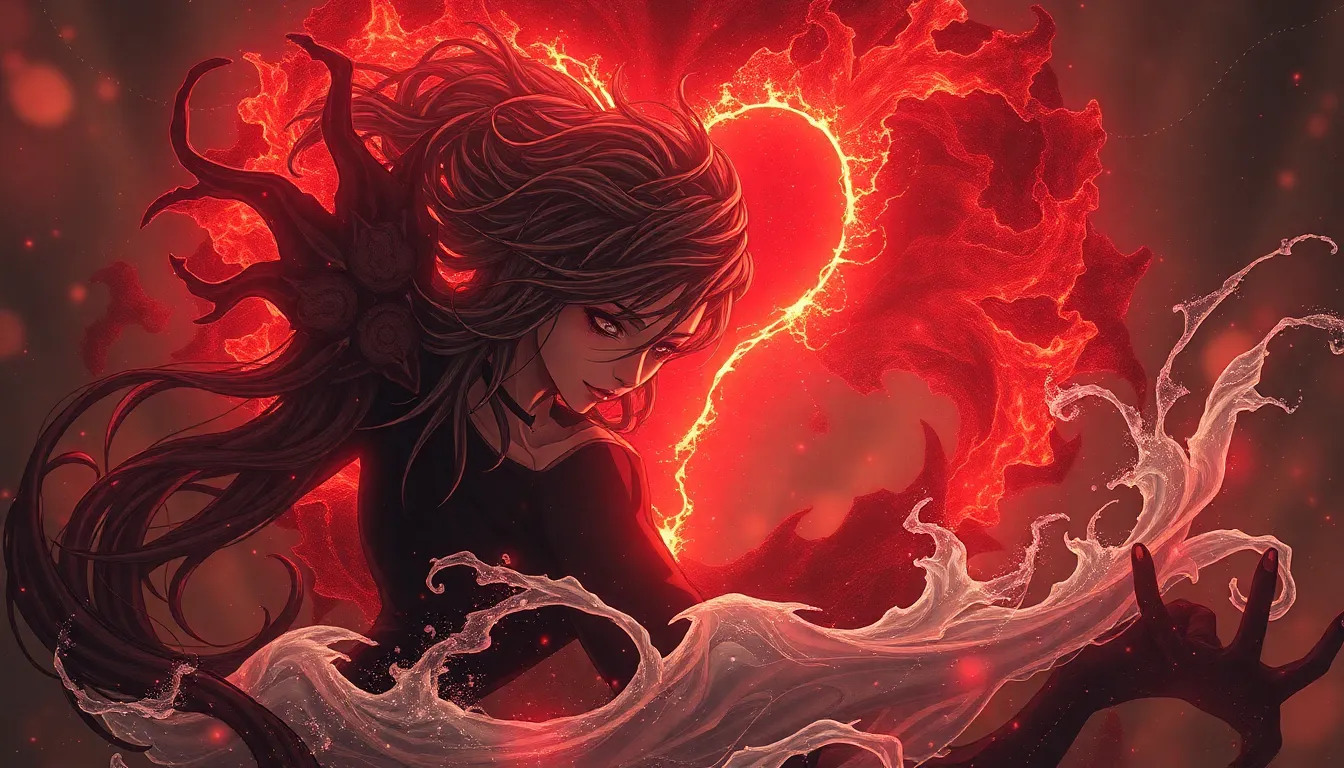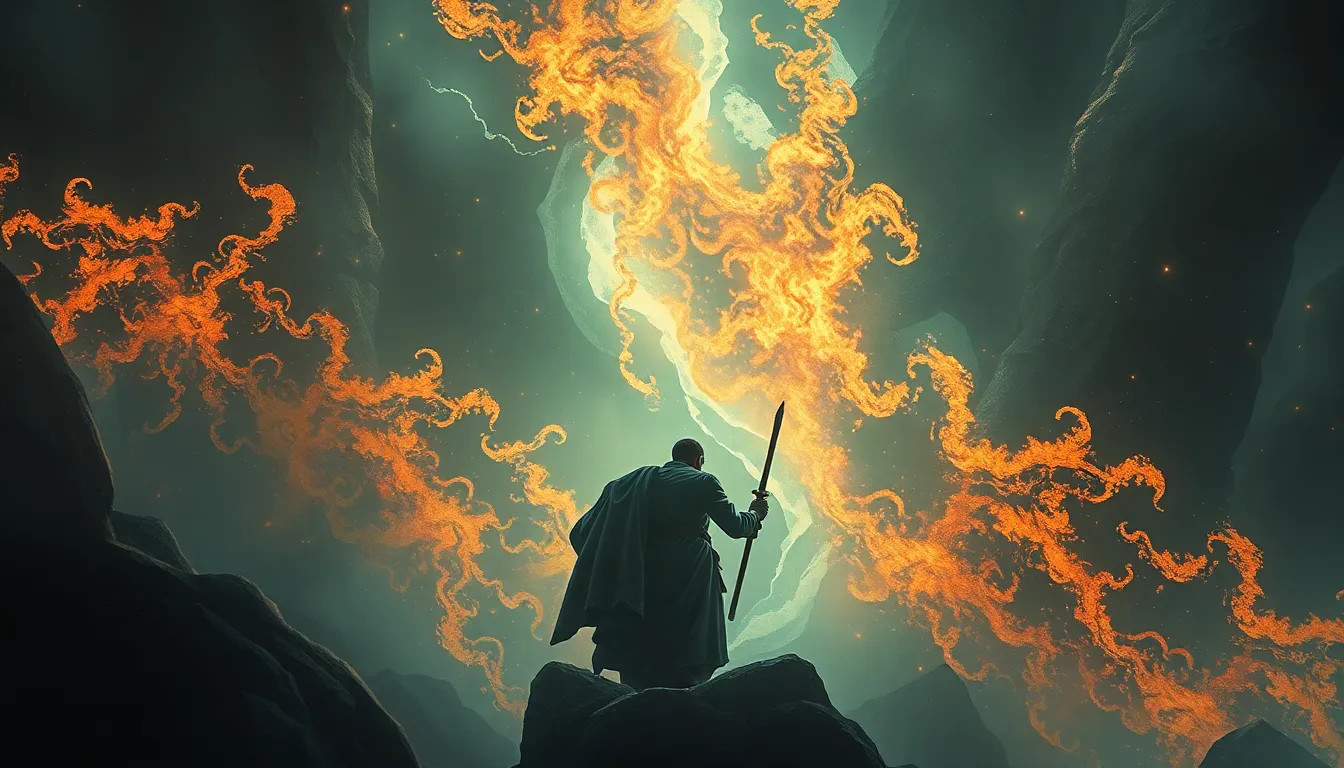1. Introduction: Unveiling the Fabric of Mayan Fate
The ancient Maya, a civilization that flourished in Mesoamerica for centuries, held a profound understanding of destiny. Their intricate mythology, woven into the fabric of their daily lives, offered a tapestry of interconnected beliefs about the nature of fate, free will, and the human journey. Within their stories and rituals, we find a rich exploration of the forces that shape our lives, both seen and unseen.
2. The Divine Tapestry: Popol Vuh and the Creation Myth
The Popol Vuh, the sacred book of the Maya, unveils the intricate tapestry of their creation myth. It tells the story of the gods, their trials and triumphs, and their role in shaping the world as we know it. Through the narrative of the Hero Twins, Hunahpu and Xbalanque, we witness the interplay of destiny and free will, as the twins navigate challenges and ultimately overcome the forces of darkness.
3. The Lords of Destiny: The Powerful Ajaw and the Nine Lords of the Night
At the helm of the Mayan concept of destiny were the Ajaw, powerful deities associated with rulership and the passage of time. Each day was ruled by a specific Ajaw, who held sway over human affairs and influenced the unfolding of events. Alongside the Ajaw, the Nine Lords of the Night presided over the underworld, symbolizing the ever-present influence of the unseen forces that shape our lives.
4. The Human Journey: The Four Creations and the Path of the Soul
According to Mayan belief, humanity underwent four distinct creations, each marked by different challenges and opportunities. The concept of reincarnation played a vital role, with the soul journeying through various lifetimes, accumulating knowledge and wisdom. This cyclical journey reflected the belief that destiny was not a predetermined path, but rather a dynamic process shaped by individual choices and actions.
5. The Tzolk'in: A Sacred Calendar, A Map of Destiny
The Tzolk'in, a sacred 260-day calendar used by the Maya, served as a tool for understanding and navigating destiny. Each day within the Tzolk'in possessed a unique combination of 20 day signs and 13 numerology coefficients, creating a complex system that revealed the energetic influences shaping each day. By understanding the symbolism of these signs and coefficients, individuals could gain insight into their own destiny and make informed choices.
6. The Interplay of Free Will and Destiny: Navigating the Crossroads
While the Maya recognized the powerful influence of destiny, they also believed in the power of human agency. This delicate interplay between predetermined fate and individual choice is evident in numerous myths and legends. Hunahpu and Xbalanque, the heroic twins, demonstrate how courage, resilience, and cunning could allow individuals to overcome seemingly insurmountable obstacles and shape their own destinies. The Maya understood that life presented both preordained challenges and opportunities for self-determination, emphasizing the responsibility individuals bore for their actions and choices.
7. The Hero's Journey: Hunahpu and Xbalanque's Triumph over Fate
The epic tale of Hunahpu and Xbalanque embodies the spirit of overcoming adversity and triumphing over predetermined destiny. These twin heroes faced trials and tribulations throughout their journey, destined to confront the treacherous Lords of Xibalba in the underworld. Through their wit, determination, and resourcefulness, they outsmarted and defeated their adversaries, proving the power of human ingenuity and perseverance against seemingly insurmountable odds. Their story served as an inspiration, encouraging individuals to face challenges head-on and actively shape their own destinies.
8. The Symbolism of Sacrifice and Rebirth in Mayan Mythology
Sacrifice and rebirth held profound significance within Mayan cosmology and its understanding of destiny. Ritual sacrifice, practiced throughout Mesoamerica, symbolized the offering of life to ensure the continuation and renewal of the cosmos. It represented the cyclical nature of existence, where death paved the way for rebirth and transformation. This cyclical understanding extended to the belief in reincarnation, where individuals' souls journeyed through various lifetimes, gaining experience and evolving towards a destined spiritual purpose.
9. The Legacy of Mayan Destiny: Echoes in Modern Thought
The Mayan concept of destiny continues to resonate with contemporary thought, inspiring reflections on the interplay of free will and determinism. The intricate tapestry of their mythology offers valuable insight into the human experience, prompting us to consider the forces that shape our lives. While destiny may present certain challenges and opportunities, the Maya also remind us of our inherent capability to influence the course of our lives through conscious choices and actions.
10. Conclusion: Destiny, Not Determinism – A Dance with the Divine
In conclusion, the Mayan understanding of destiny offers a rich perspective on the interplay between predetermined fate and individual agency. Their myths and beliefs highlight the significance of both accepting the inevitable and actively shaping our destinies through courage, resilience, and self-awareness. The legacy of Mayan thought continues to inspire and challenge us, encouraging a balanced perspective on the nature of life and our place within its intricate dance with the divine.
Frequently Asked Questions (FAQs)
What were the four creations in Mayan mythology?
The four creations in Mayan mythology refer to distinct phases in the creation of humanity. Each creation involved different challenges and involved different beings, with the final creation resulting in the emergence of present-day humans.
How did the Tzolk'in calendar influence the understanding of destiny?
The Tzolk'in calendar was an integral tool for navigating destiny. The unique combinations of day signs and numerology coefficients within the calendar revealed energetic influences that shaped each day. Understanding these influences allowed individuals to make informed choices and align their actions with their intended destinies.
Did the Maya believe humans had free will?
While the Maya recognized the powerful influence of destiny, they also believed in the power of human agency. The interplay between predetermined fate and individual choice is reflected in various myths and legends, including the story of Hunahpu and Xbalanque. The Maya understood that individuals were responsible for their choices and actions, emphasizing the importance of self-determination in shaping one's destiny.



